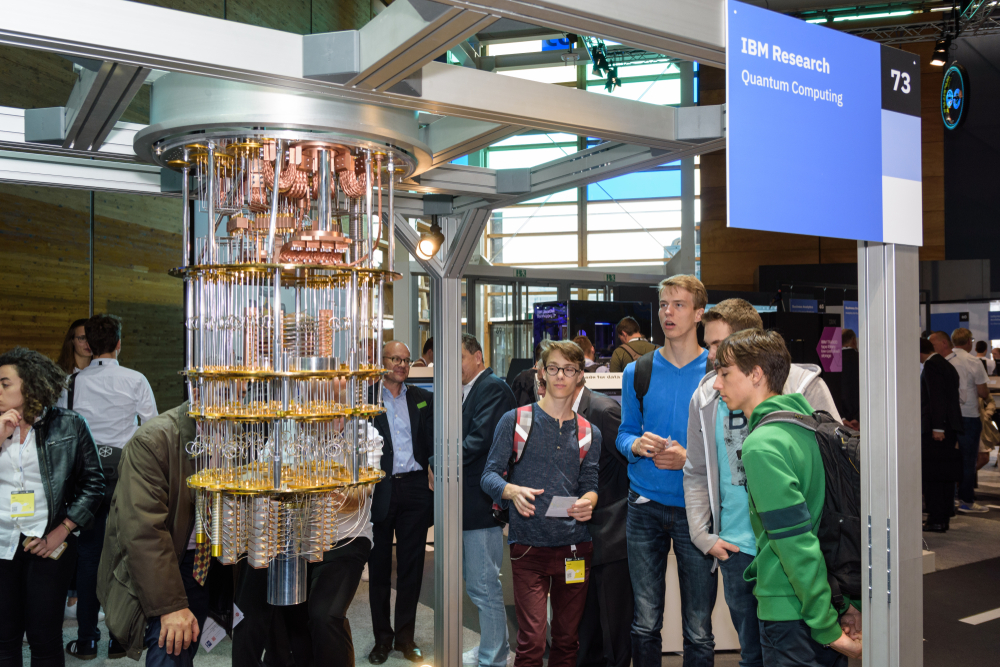IBM Quantum Computers Reach a New Performance High
At the 2019 American Physical Society March Meeting today, IBM revealed that its quantum computers have achieved the “highest quantum volume to date.”
Quantum volume is a metric IBM uses to determine the real-world performance of a quantum computer. The company argues that this is a more accurate way to measure the performance of a practical quantum computer compared to comparing the number of qubits alone.
IBM Doubles Quantum Performance Every Year
IBM said that it's been measuring the quantum volume of its quantum computers and has seen it's computers' performance double every year since 2017. The company claimed this sort of performance improvement rate will be necessary for quantum computers to beat classical computers soon.
IBM recently unveiled the IBM System Q One quantum computer with 20-qubits and a quantum volume of 16, which is double what the company’s previous generation quantum computer had. Intel says quantum volume is determined by various factors, such as the number of qubits, connectivity and coherence time. It also accounts for gate and measurement errors, device cross talk and circuit software compiler efficiency.
IBM also announced that its latest quantum computer can achieve one of the lowest error rates around, with an average 2-qubit gate error that’s lower than 2 percent, while its best gate can achieve an error rate of less than 1 percent. This seems competitive with, albeit slightly behind, the low error rates of Google’s and IonQ’s quantum computers.
Use Cases for Practical Quantum Computers
As Intel's quantum computers continue to double their performance every year, more complex problems and chemistry simulations should become practical to solve. Some potential use cases could be the precise simulation of battery cell chemistry for electric vehicles, as well as delivering a quadratic speed up for derivative pricing and others that are currently investigated by the IBM Q Network partners.
IBM believes that the doubling of quantum volume every year will bring the “quantum advantage” over classical computers in the 2020s. In other words, quantum computers should soon be able to show that they can beat even the world’s most powerful classical supercomputers in certain real-world applications.
Get Tom's Hardware's best news and in-depth reviews, straight to your inbox.
Want to comment on this story? Let us know what you think in the Tom's Hardware Forums.
Lucian Armasu is a Contributing Writer for Tom's Hardware US. He covers software news and the issues surrounding privacy and security.
